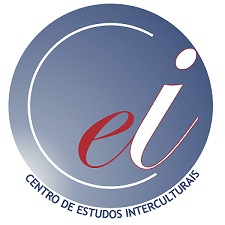
II Masterclass – Alumni of the MA in Intercultural Studies for Business, 04-01-2022, 19:00.ZOOM: https://videoconf-colibri.zoom.us/j/84103341873…
After the first Masterclass held on 30 November, the MA in Intercultural Studies for Business is hosting another Alumni Masterclass, this time with interventions from the graduates
Luísa Silva – GraffitiAroundPorto to filling the gap!
Goreti Araújo – Do your thesis with an agile heart
Mariana Camelo – Refugee Integration Policies, Gender Issues & Trauma: A Case Study in Germany
Filipa Oliveira Costa – The impact of a museum in a community: Interferências 1.0 study case
It will be followed by a debate with all the presents. Access is free
Luísa Silva – GraffitiAroundPorto to filling the gap!
As intervenções de graffiti e de street art, quer sejam reivindicadas ou comissionadas, estão sempre ligadas às comunidades onde estão inseridas. Potenciam o desenvolvimento urbano tanto na sua relação com as comunidades, contribuindo para a coesão e revitalização social, como na estratégia de regeneração urbana e valorização do património local. No entanto, esta cultura jovem, multicultural e de grande impacto visual no espaço urbano contemporâneo, embora identificável, a sua abrangência e influência nem sempre são bem compreendidas.Baseada na dupla abordagem, de dinamização e promoção cultural, procedeu-se à criação de um projeto de empreendedorismo social, utilizando o graffiti e a street art como recurso para o empoderamento das comunidades. Foram estabelecidos igualmente dois objetivos principais. Por um lado, a ação pedagógica e simultaneamente lúdica para a familiarização do graffiti e da street art junto da população, por outro lado, a elaboração de rotas descentralizadas, fora dos centros turísticos, para o incremento do turismo cultural e desenvolvimento económico local. A delimitação territorial da Área Metropolitana do Porto, e correspondentes análises macro e micro ambientais, estabelecem as orientações para a implementação do projeto GAP– GraffitiAroundPorto.
Luísa Silva é Mestre em Estudos Interculturais para Negócios e Licenciada em Comunicação Empresarial (ISCAP/P.PORTO). Investigadora júnior no Centro de Estudos Interculturais (CEI/ISCAP). Integra o projeto “StreetArtCEI”, do CEI/ISCAP, com participação em artigos, comunicações e congressos nacionais. Criadora de percursos culturais taylor-made no âmbito turístico, cultural e social.
Goreti Araújo – Do your thesis with an agile heart
I’ll tell you how I worked on my thesis (and other projects) using Agile concepts and how being an interculturally effective person helps you do (not necessarily more but) better. Oh, and I’ll talk a little about Science Fiction and how it will help you write a thesis.
Goreti Araújo was born and raised in Porto, but sees no real point to frontiers, except as something to be crossed. She was co-author of the Matilde Rosa Araújo National Prize in 2008 for one of her two published books, A Ilha dos Guardadores de Aranhas, so she believes in group efforts and knows recognition for your work is a prize in itself. She studied languages, literature and culture, so evidently she works in neither of these areas, but in fact works with them all, as they are a part of her. With almost 15 years of training and work in international relations connected with higher education and mobility, she decided to write a master thesis related to Star Trek Voyager. Just because she could. She is about to publish her third book and it takes place in space.
Mariana Camelo – Refugee Integration Policies, Gender Issues & Trauma: A Case Study in Germany
The masterclass will be composed of several steps containing thesis advice and a summary of the reached conclusions of the dissertation. It will begin by introducing the importance of reflection upon interest areas and methodologies and provide an example of definition of focal areas to be taken into consideration when starting a dissertation. Followed by practical examples (through illustrations) one will demonstrate the importance of defining a realistic time frame and setting out practical ways to organize information (symbolic layout of a table of contents,gathering of scientific data, etc). Fieldwork will also be emphasized throughout the presentation as it envolves cautious planning and adequate preparation, given the cultural and logistic complexities that may arise; a set of advice based on my experience will be given as well as information regarding the data management and filtering. The last part is devoted to displaying the results and reached conclusions of the research through charts, graphs and key affirmations.
Mariana Camelo is a MISB graduate from Porto, Portugal. She concluded both her bachelor’s degree in Business Communication and her masters degree in Intercultural Studies in ISCAP, having done field research in the topic of migrant integration policies and refugee studies in Germany. Currently working as an administrative and part-time tour guide she partook in a now paused PhD in Political Communication in the University of Santiago de Compostela in Spain, where she studied for a year (2019-2020). Her research interests include politics, diplomacy, gender, cultural & refugee studies and her thesis investigation remained in the fields of refugee studies and will include a larger scale field investigation as well as a more theoretical approach to the refugee crisis and matters of gender and politics within Europe.
Filipa Oliveira Costa – The impact of a museum in a community: Interferências 1.0 study case
This reports refers to the internship completed at Museu da Chapelaria, a museum located in the city of São João da Madeira. In today’s technologically evolved culture, museums may help connect what used to be to what has changed and will become. This means that museums put our society into perspective, and through new communication strategies such as digital transformation, they can create new ideas to stay relevant and unique. The digital transformation brought new work schedules and regulations to museums. Once they were closed due to the Covid-19 situation, remote work and digital promotion were essential. The market started a need for innovation and strategies to keep giving the public access to culture. Due to the public’s demand for immediate consumption, a museum’s ability to adapt to society’s social and economic changes is valuable. In recent years, in response to growing market demand in the cultural sector, museums have been forced to use more attractive technological resources and, as a result, engage more effectively with the public. Thus, the use of marketing has emerged spontaneously in the development and increase of cultural offerings. Furthermore, museums are connecting even more with the community they are inserted in and the type of culture consumers they want to attract. The objective of this report is to present and analyze the internship at Museu da Chapelaria and portray in full detail the tasks carried out throughout the internship related to the museums and the project Interferências 1.0 (which promotes access to culture for more vulnerable groups in society), alluding to the new strategies that were created for the new type of work situation the world is living in.
Filipa Oliveira Costa is a graduate in Languages, Literature and Culture from Aveiro University, with a Master’s Degree in Intercultural Studies for Business at ISCAP-P. Porto. Her research interests focus on social inclusion as well as sociocultural entrepreneurship and local development.

